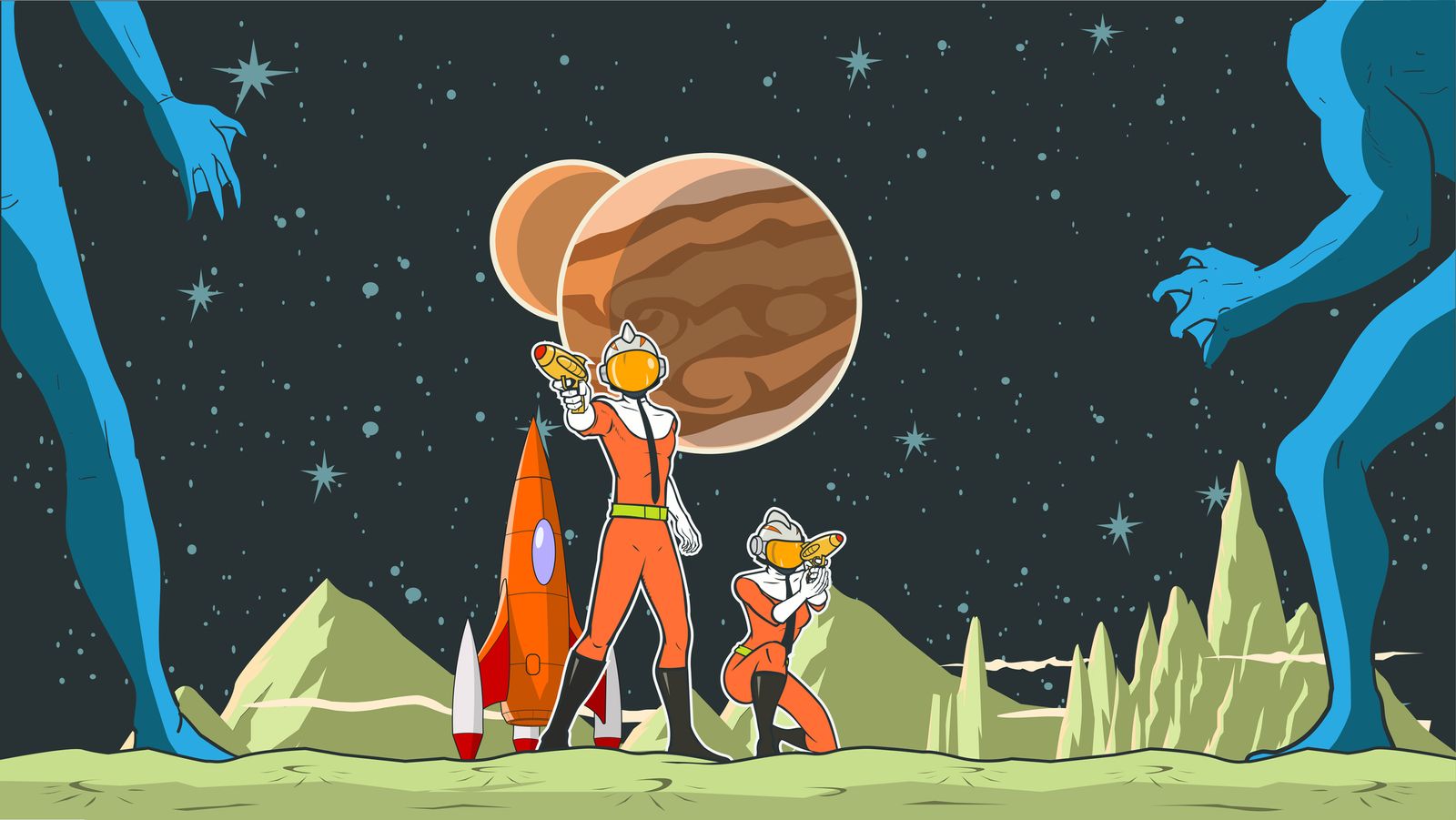How to survive AI… the skills we need to stay relevant: Part 3
In Part Two, we looked at how this is changing the way in which insight operates within the strategy, marketing and insight disciplines, introducing the seven ‘Power Skills’. In this final instalment, we put the spotlight on each of these skills.

Article series
How to Survive AI … the skills we need to stay relevant
- How to survive AI… the skills we need to stay relevant: Part 1
- How to survive AI… the skills we need to stay relevant: Part 2
- How to survive AI… the skills we need to stay relevant: Part 3
- How to survive AI... The skills necessary to stay relevant: Presentation
Power Skill One: Critical Thinking
Clear, deep, accurate thinking lies at the heart of business success. And when it comes to ‘deductive’ reasoning - the ability to meticulously follow a logical line of thought - then generative AI is leaving us, humans, in its wake. Similarly, with ‘inductive’ reasoning, we will be no match for AI with its ability to absorb billions of conversations and observations and raise these to a set of principles, hypotheses and theories that help explain the world.
So when it comes to critical thinking skills, our focus - in working alongside AI – needs to be on our ‘abductive’ reasoning prowess: arriving at an informed solution in the face of uncertainty and imperfect information. This is about going beyond where deductive and inductive reasoning takes us and applying fuzzy logic to make that final leap to the best possible interpretation of events.
It is this kind of thinking that characterised how Alan Turing – using his electromechanical Bombe - cracked the enigma code. Sitting on top of Turing’s towering mathematical genius was his ability to apply his intuition and make educated guesses about likely human behaviour. This instinct allowed him to solve that final part of the puzzle. It is all about applying ‘informed intuition’, where the facts, heuristics and flair collide to create an insight that unlocks a solution.
So we can think of our first human power skill as being the ‘crystalliser’, sitting on top of deduction, induction and clean thinking - going the extra abductive mile for a solution. This flows from factoring in those subtle but revealing insights about the quirkiness and nuances of human behaviour that may have escaped ChatGPT.
Power Skill Two: Sensemaking
We now look at making sense of our volatile, uncertain, complex, ambiguous and insecure world. Here, it looks like generative AI has all the quantitative data analysis dimensions to this totally buttoned up. It is table stakes for AI to reduce down the data to that which is most meaningful, assess its validity and reliability, apply all sorts of statistical wizardry and tell us what is going on.
And similarly, when it comes to the analysis of qualitative data - the searching out for the meaning in vast swathes of unstructured conversations - humans are going to find it hard to match the breadth and depth of what generative AI can deliver us.
And moving up the hierarchy of the analysis process, we can assume that AI will do a pretty good job of contextualising fresh primary evidence by locating it into powerful conceptual frameworks - mental models - that help us interpret what is happening. It is just a matter of AI processing every relevant business model and reframing the new evidence within this context to throw up heuristics and insights that enhance our interpretation of what is happening.
Continuing up the analysis tree, we can expect generative AI to acquire the skill of submitting its emerging interpretation to what it is rapidly learning about cultural linguistics: ensuring subtle cultural nuances and wordplay pass through a rigorous semiotic assessment.
So what role will we humans be left to play in the post-generative AI data analysis process? Well, this takes us to being the ‘wide angle lens’ with the panorama view of how interconnected events are likely to play out. Isaiah Berlin refers to top business leaders and visionaries as having the higher order skill of ‘developing an acute sense of what fits with what, what springs from what, and what leads to what’.
So with this superpower, you would be able to explain how events in Ukraine are likely to affect negotiations with China on Tik Tok, how this will impact the exchange rate, and how this will then influence the cost of living index whilst also working through whether this will prompt public sector strikes and implications for political parties in the next national election. You get the idea!
With these complex interconnected analysis sequences, generative AI might currently struggle to match the silky capabilities of a highly educated, informed renaissance man /woman - a polymath - with a holistic and cultured understanding of philosophy, data science, geopolitics, social psychology, and so much more.
Power Skill Three: Creativity
AI is well placed to deliver on assignments that fall into the problem-solving category of ‘creativity’. Here we can think of creativity as resulting from a process. Barnes Wallis, the inventor, said, ‘I have never had a creative idea in my life: all I do is solve problems’. This is about creativity being a very disciplined business.
So here, we can expect lots of creative output from generative AI - free from the need for any human intervention - based on its capacity to conduct endless permutations of creative experiments to unearth something new. But moving to another form of creativity, we arrive at ideas that emerge from using different creativity tools and techniques to edge us up a notch beyond where our initial creative attempt landed us. Brian Eno worked with David Bowie using the Oblique Strategies technique. Bowie would come up with a starter idea, and then ‘strategies’ would be randomly drawn along the lines of slowing the tempo, changing the middle eight, or trying this in the style of Mozart.
We can see a massive creative role emerging for us humans working in the generative AI ideas playground, acting as ‘creative prompt engineers’ to nudge, nag and stimulate the initial generative AI creative output up to the next level. It is about knowing how to take part in a creative, strategic dialogue with machine intelligence that has access to most of the conversations that have ever taken place on this topic or theme - exciting stuff!
At the top end of the creative range, there is then our human capability to conjure up out of thin air the next Harry Potter, Star Wars or Game of Thrones. Here we are probably safe to assume that even when working alongside a fantastic creative prompt engineer, Generative AI will not any time soon deliver us the next TS Eliot with penetrating insights into what it is to be human: ‘the end of all our exploring will be to arrive where we started and to know the place for the very first time’.
So there is a window of creative opportunity for us humans to excel in pure ‘creative genius’ mode. But realistically, when we ‘whistle down the pit’, this kind of raw creative talent doesn’t emerge very often.
Power Skill Four: Storytelling
Daniel Pink claims that today ‘the world now belongs to storytellers’ - those with the ability to fashion engaging narratives that tap into our emotions. These days business and marketing are no longer just about the quality of a company’s products and services but about its ability to weave compelling stories about its offer. Stories have power because they capture and empathise with the human condition and experience. When it comes to storytelling, generative AI is getting better and better by the day. It continues to understand what story structures and formats work best in different scenarios.
It can provide good working first drafts that open the door for us humans to embellish and add our own anecdotal personal storytelling episodes to provide lean-in, edge and excitement. We can creatively build on what generative AI initially proffers. But again, there is no room for complacency as generative AI is already demonstrating that it can outgun all but the very best of copywriters.
So the human role here will be around finessing the communications structures AI has initially selected based on what it has learnt about what makes for persuasive and influential communications.
AI will get us to first base, and we then add the twists, surprises and insights into the human psyche that the computer has yet to, and may never, experience. We take the first draft and elegantly weave into the AI storyline those little hooks that anchor the message and make it stick, resonate and appeal to our indomitable human spirit.
Power Skill Five: Foresight
One area where we appear to have an edge on generative AI is around the human ability to think about the future and invent tomorrow. Professor Thomas Suddendorf argues that the human mind is a Virtual Time Machine. He sees the ability to think about the future as what makes humans unique. This capacity for mental time travel - foresight - is what sets humans apart.
Generative AI is, of course, capable of strategising, planning and preparing a sensible future path. But it is we humans who can reach out into the future and empathise with what is likely to appeal to human’s sense of adventure, justice, morality and integrity. This is not to say that we humans are clairvoyants able to predict the future. But we do carry a sense of responsibility for what we want the human future to look and feel like for successive generations.
This takes us to arguably our unique human capability to make sense of the big uncertainties and events that are coming down the track - the most likely disruptors. It is about our skill in being able to see what the future might look like and our capabilities in examining a messy, chaotic picture and plucking out the most plausible possible futures.
AI will support us here with its ability to work up the trends and do the mathematical modelling, but it is we humans who will lead the charge. We seem to be the only animal on the planet capable of foreseeing the distant consequences of our actions (and non-actions!).
So arguably, it is here where our fuzzy logic reasoning capability meets our big picture sensemaking skills and, with that splash of pure human creativity, allows us to make the leap to ‘future histories’ we as a society what to embrace.
Power Skill Six: Inspiring
We are seeing a steady increase in the highly effective use of chatbots to handle a range of ‘conversations’ from sales to customer service right up to conducting straightforward job and research interviews.
But there remain a couple of areas where humans lead the way and where generative AI seems likely to struggle to match that inspirational human warts and all personality dimensions we offer.
Clearly, Data from Star Trek knows his stuff, but he has a pallid demeanour that is a long way from delivering the inspiration and personality we seem to crave!
When it comes to having presence and showtime - being there in the moment and turning up with your ‘A-Game’ - there are a couple of dimensions to this.
One dimension is being able who play out what Seth Godin refers to as a ‘linchpin’ role. He defines this as someone who can walk into chaos and create order, someone who can invent, connect, network, create and make things happen.
He sees these skills as difficult for AI to replicate. Here, we can see how Al is equipped to provide the organising systems and process elements for this role. But it will fall short in providing the key defining feature of a linchpin: a winning inspirational personality - an energy radiator and problem simplifier to whom people will warm. This is someone who knows which levers to pull to successfully manage people in ambiguous and stressful scenarios.
And the next dimension to what we have labelled the ‘inspirer’ power skill is our human penchant for a ‘celebrity’. This craving for receiving information and news from a ‘celebrity’ is something that generative Al chatbots will struggle to emulate. It will (for example) become pretty straightforward to provide an AI newscaster with all the contextual knowledge he/she/it needs and to train them to select the most appropriate penetrating questions to fire at guests and politicians in different scenarios.
But the rub is that we warm to inspirational (human) personalities to provide the authority, credibility and charisma that we find comforting when we are receiving news and information. An interviewing machine just does not cut it. We want our ‘celebrities’ – vulnerabilities and all. There is something primal about this. Donne said, ‘Ask not for whom the bell tolls, it tolls for thee’.
And one interpretation of this takes us to our need for ‘heroes’. Deep down, we all know that there is a cigarette paper difference between making it big in our respective fields of human endeavour and not quite making the grade.
When we see celebrities, we think, ‘that could have been me’ - we could all have been contenders! We relate to and enjoy vicariously the rollercoaster of celebrity journeys. If we strip away all this human drama and replace it with a more efficient but also less fallible and volatile robot, this takes the fun out of the ride.
Power Skill Seven: Decision-Making
When it comes to decision-making and fine judgements, the prevailing view is that this will be the last skill set to fall to generative AI.
Polls show that people think CEOs and Judges will be the last roles to be automated (or AI’d). Nobody wants to be sent to jail by a set of algorithms or to be fired by a hologram!
The reasons seem clear. We can see how large swathes of the legal process will go over to AI but not the final judgements on innocence or guilt and the nature of the sentence. This requires weighing up complex aggravating and mitigating factors and settling on a sentence that balances out the need for punishment and rehabilitation whilst also serving as a deterrent. Similarly, much of the organisational, financial management, and hygiene elements of the CEO role will no doubt gradually be absorbed by AI, but not those vital, make-or-break, big calls.
So, if we were to take the classic decision-making process, we can envision AI intelligently framing the decision choices and then mapping out the risks posed and opportunities opened by each. We can also see AI doing a sound job in setting out the consequences of going down each route, together with making an informed assessment of the likelihood of success. AI will bring a lot of strategic excellence and best practice to the decision-making process. But AI will not match the host of clues, hints, intuition, hunches and educated guesses the seasoned CEO will bring to the table in making the final go/no go call.
Moreover, a charismatic CEO can provide motivational leadership - reflecting their experience and skill in encouraging people to stay energised and focused on the endgame. None of these CEO skills are easy to automate, and presumably, this is why these guys get paid the big bucks!
Building teams with the key power skills
We have mapped out a landscape over which AI will dominate and gradually overtake human capabilities in some key business functions and where it will play a supportive but not dominant role. Successfully picking our path across this landscape requires us to focus on our Power Skills, areas where humans, flying solo, can still excel and add the most value. These will be areas where humans will be collaborating with generative AI and also fields where humans will continue to offer that dimension that is currently beyond AI - and /or where we feel uncomfortable with AI taking the reins.
There is not an expectation that we train up superheroes who can do everything. It is about building T-shaped teams where everybody has some competency across all of the power skills (the top of the T) whilst specialising in selected areas (down the T). What is unfolding leads us to the view that fostering agility and fluidity in thinking skills is critical.
The ability to comprehend, and importantly empathise with, the complexity of the human condition - capturing what it is to be human - is going to be one of the main ways in which we can work alongside generative AI and still make a difference.
We look forward to hearing your views.
David Smith
Director at DVL Smith LtdDavid Smith is a Director of DVL Smith. He is also a Professor at the University of Hertfordshire Business School. He holds a PhD in Organisational Psychology from the University of London and is a Graduate Member of the British Psychological Society.
He is a former Vice President of ESOMAR and also a former Chairman of the UK Market Research Society (MRS).
He is a Fellow of the Market Research Society, a Fellow of the Chartered Institute of Marketing and also a Fellow of the Institute of Consulting. David is a Certified Management Consultant.
Adam Riley
Founding Director at Decision ArchitectsAdam Riley founded insight consultancy Decision Architecture Limited in 2006. His 25-year-plus career has spanned market research agencies, client-side roles and management consultancy. Adam joined TN-AGB in the early nineties, before moving to RSL in its embryonic international research team.
After an MBA at The London Business School, he joined Samsung in South Korea, as a Global Marketing Strategist, before moving back to London and becoming a senior member of the marketing strategy practice of Monitor Company (now part of Deloitte).
Article series
How to Survive AI … the skills we need to stay relevant
- How to survive AI… the skills we need to stay relevant: Part 1
- How to survive AI… the skills we need to stay relevant: Part 2
- How to survive AI… the skills we need to stay relevant: Part 3
- How to survive AI... The skills necessary to stay relevant: Presentation


